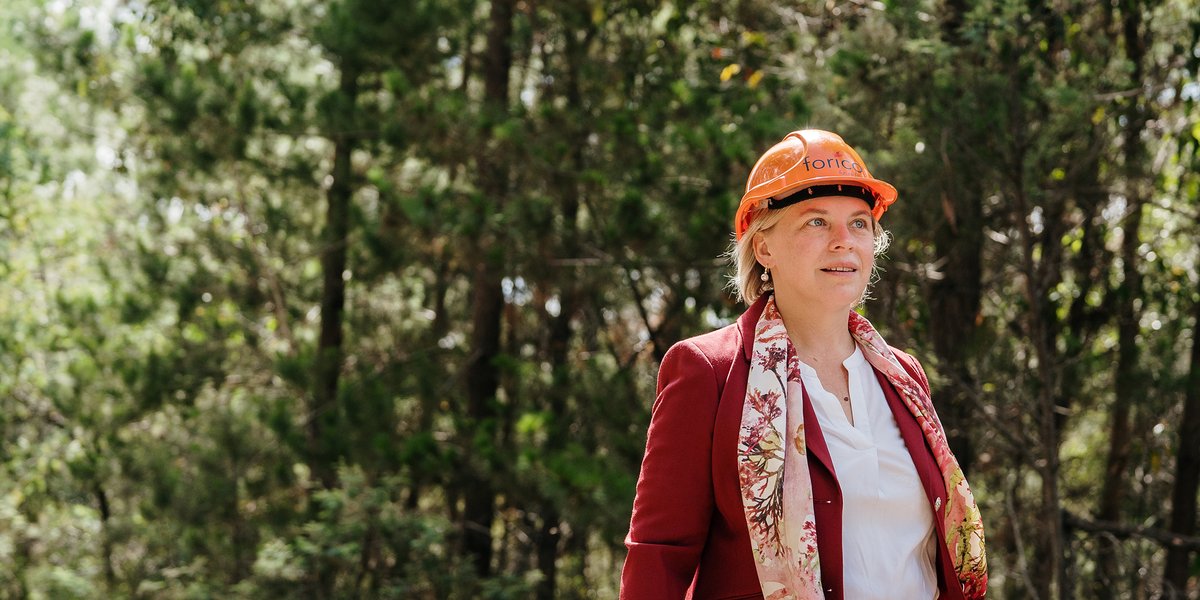Jane Wardlaw
"I had to get involved in disability advocacy so I could get my basic needs and rights met, and I was lucky to be able to build on the work of other disability advocates, who had already played a significant role in influencing more choice and control."
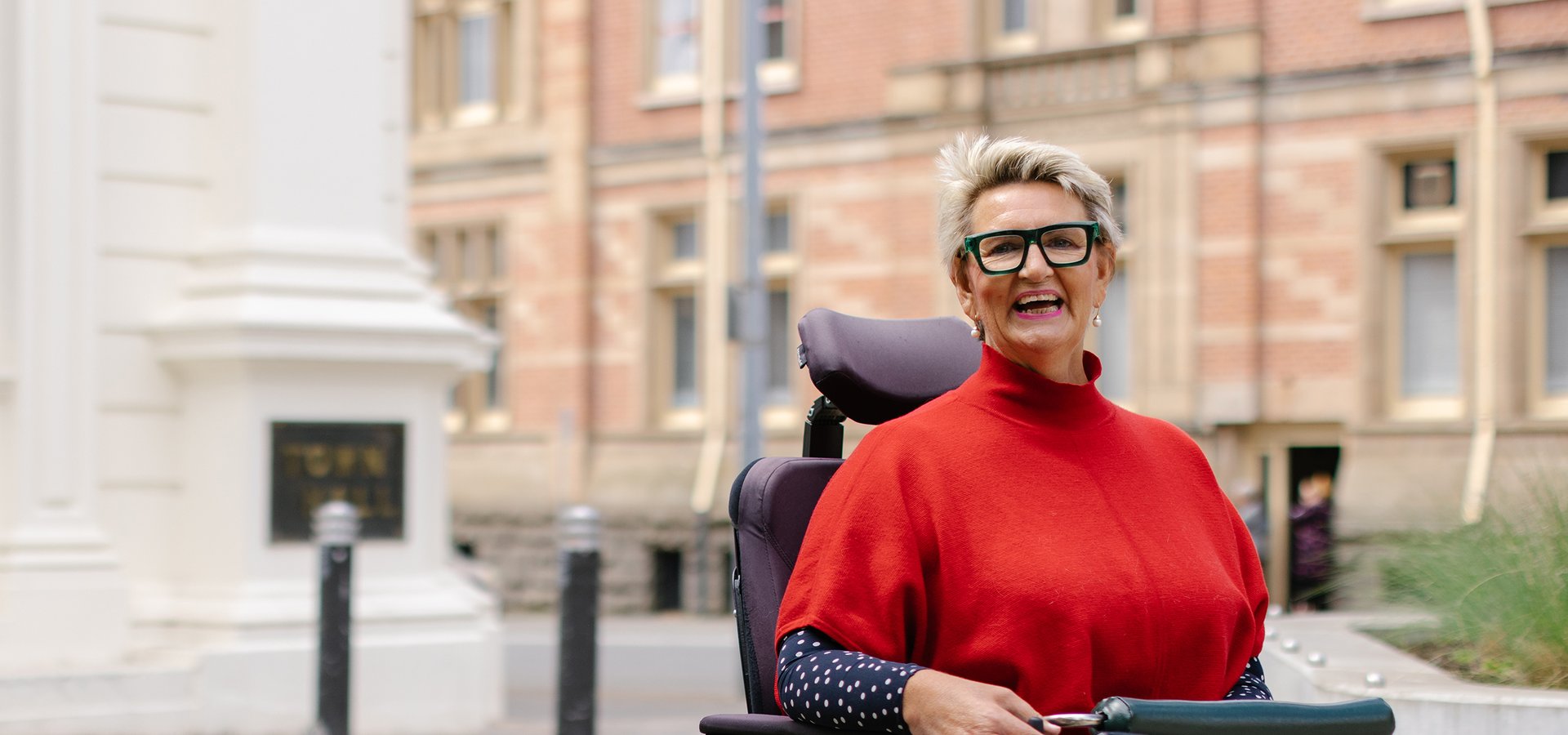
"In many aspects we’re working on self-determination with people who are vulnerable historically. What is it that we need to be responsible for our own futures? All the work I’ve done across my career has led to this. I love it."
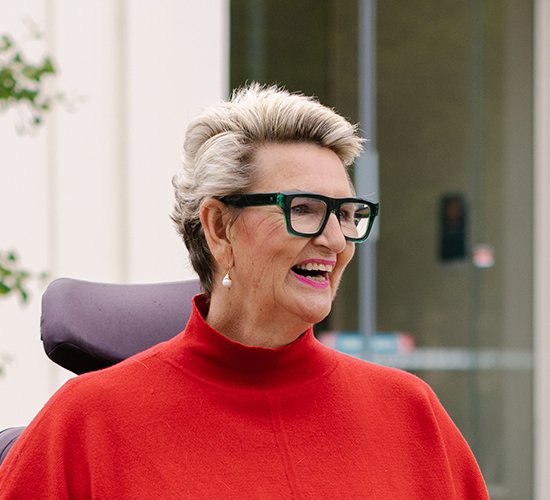
Jane Wardlaw never planned on becoming a disability advocate.
Born and brought up on Tasmania’s East Coast, Jane’s professional background is in regional economic development. After she left the state in her early 20’s, that challenging but rewarding career saw Jane living and working for many years in outback far north Queensland and Western Australia.
But when she returned to Tasmania in 2006, the shift to advocacy work came about — through necessity as much as choice.
“When I came home to Tasmania, I stumbled into disability politics simply because I was trying to get the support I needed and it wasn’t forthcoming,” Jane says. “I had lived in Western Australia for the eight years leading up to my return, and there were really good systems and supports there for people with disability. Ultimately you had a lot of choice and control, but down here in Tasmania we were still working to get there. I had to get involved in disability advocacy so I could get my basic needs and rights met, and I was lucky to be able to build on the work of other disability advocates, who had already played a significant role in influencing more choice and control before I entered the scene.”
Now based in Launceston, and widely known as one of Tasmania’s leading disability advocates and consultants, Jane grew up in the 1970s on a beautiful rural property in Chain of Lagoons. At the age of 11, she was diagnosed with muscular dystrophy — a degenerative muscle wasting condition that her two sisters were also diagnosed with in childhood.
“My elder sister was complaining of having really sore legs. She was the first to display the most symptoms, but eventually they sent us all three of us to Victoria to see a neurologist,” explains Jane. “We were diagnosed with a rare form of Limb Girdle Muscular Dystrophy. At the time, all that really changed for us was doing a lot more exercises and going to physio once a week. We still went to mainstream schools. It must have been very hard for mum and dad because there wasn’t a lot of support in those days for anybody. But I’m really grateful to have had that supportive family environment. I come from a line of very strong women.”
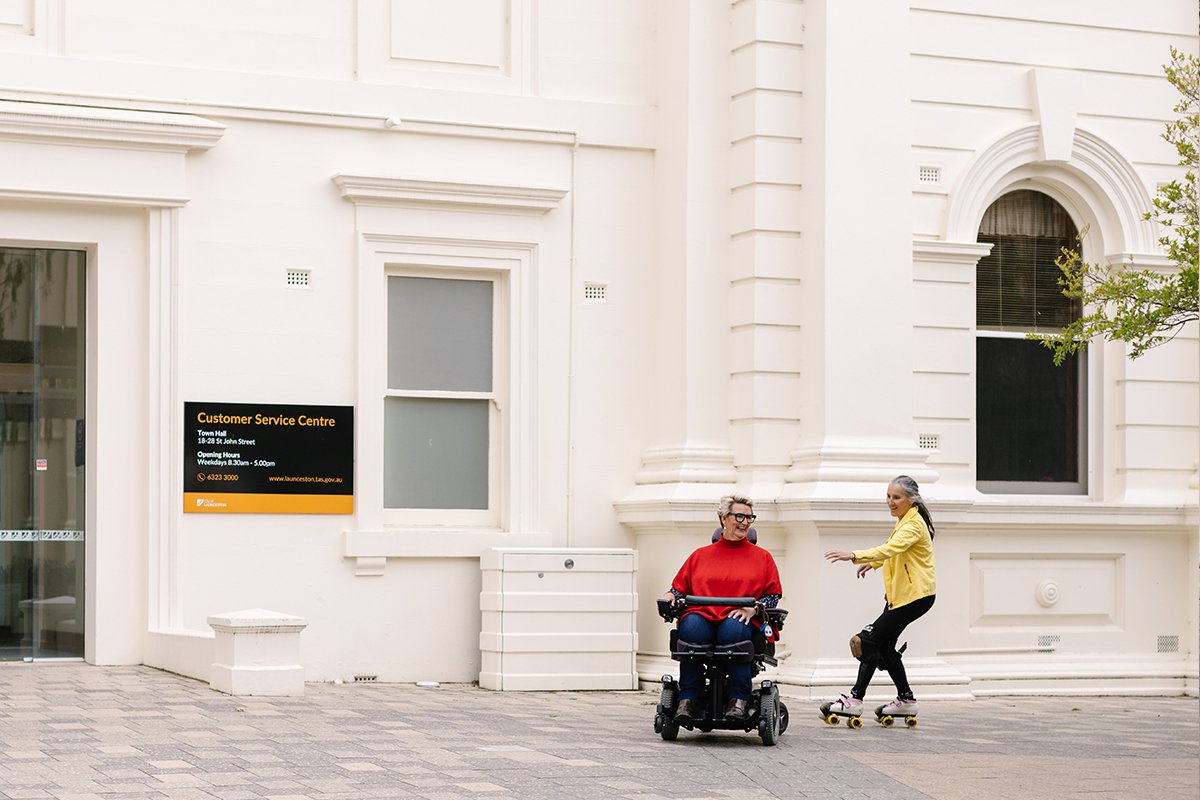
At the time, little was known about Limb Girdle Muscular Dystrophy, and the treatment of people with disabilities was often very poor. Although support systems are now starting to improve, and Jane has adopted an intentionally positive approach to life — choosing to reframe ‘problems’ as ‘opportunities to do things differently’ — even she is not immune to the societal pressures and attitudes that have been around for so much of her life.
“I have this really bad imposter syndrome that I’m not good enough,” she says. “I think it’s a hangover of being a disabled woman. When you look back at the history of disability, we’ve almost been seen as not quite human because we have different bodies. Society has always said we’re not quite good enough. When actually, we’re all equal. The United Nations Convention on the Rights of People with Disability encapsulates those rights and states that we are human rights subjects, just as non-disabled people are. My greatest opportunity is to live that truth.”
In the 17 years since she returned to Tasmania, Jane has held a number of high-profile positions, including founder of the social media campaign Tasmania Disability Lobby, which advocated for improved disability social and economic reform agendas, and Assistant Director of Engagement in the leadership team implementing the National Disability Insurance Scheme (NDIS) during its trial phase.
“When I first moved back here, we had other people making decisions for us, and that didn’t sit well with me. I wanted to be able to choose who it was that came in to do my care; I didn’t want a service provider taking control of my life. I realised there were issues with the legislation at the time, so I started working with key government ministers, advocating and proposing new ideas about how we should be self-directing. It takes a long time to do advocacy work, but we did achieve quite a bit.”
In 2018, Jane decided it was time to step down from the consultancy firm that had she co-founded. The following year, she re-entered the world of research and began studying for a Masters of Education with the University of Tasmania (UTAS), which she hopes to eventually progress into a PhD.
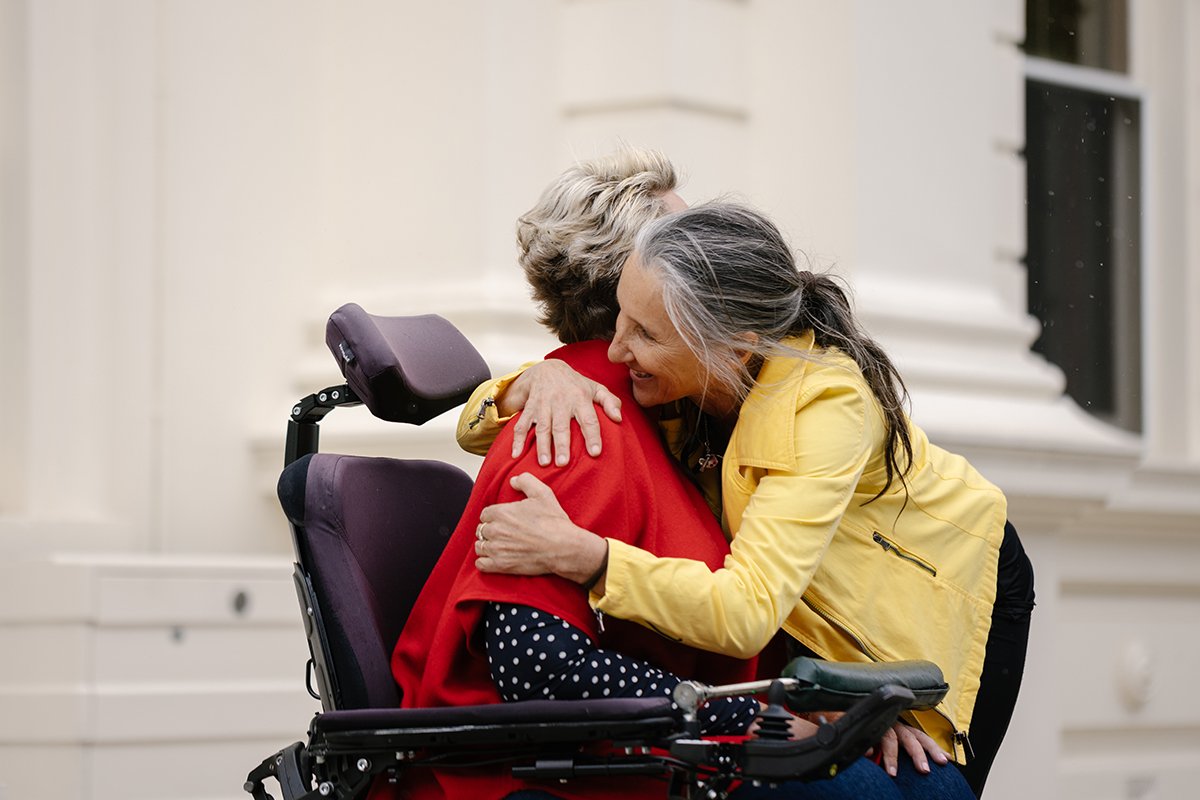
... self-determination always looks at the problem being people with disability. What I’m saying is that actually it’s not their problem, it’s a problem with the system.
“The research that I’m doing at the moment is exploring rights to self‑determination and how that plays out in policy and practice,” she explains. “A lot of the research that I’ve read so far about self-determination always looks at the problem being people with disability. What I’m saying is that actually it’s not their problem, it’s a problem with the system.”
“There are actually a lot of parallels with my previous work in regional development,” she continues. “My job was to go into remote communities and gain social intelligence about how they operated —what were their needs; where did they see themselves in five years’ time? The model of practice that I ended up adopting is very relevant to the disability community, because in many aspects we’re working on self-determination with people who are vulnerable historically. What is it that we need to be responsible for our own futures? All the work I’ve done across my career has led to this, so I think I’m meant to be doing this. I love it.”
Studying at UTAS has also given Jane the opportunity to teach, which is something else she loves. As someone who believes passionately in investing in people — and who cares deeply about Tasmanian communities — it seems fitting that she has been able to take all her years of professional experience from elsewhere and find a way to apply that in her home state.
“What’s lovely about coming home is that there’s a memory around every corner, and those memories give you a really strong sense of connection and belonging,” says Jane. “Tasmanians are really friendly, open people generally and I would like to think we’re very welcoming too. There’s so much opportunity down here for growth. I think we should encourage our young people to experience as much as they can in the world and to live in different places; but I also feel that we have an obligation to bring those skills back and invest back into our community. And that’s what I’d like to think that I’ve done.”
Thanks to Jane’s friend Roxanne Grant for contributing her roller skating prowess to this Tasmanian story.
Jane is one of 17 Tasmanians featured in our short screenpiece about Women in Tasmania, created in partnership with our friends in the Department of Premier and Cabinet's Women's Portfolio.
We worked with north west Tasmanian photographers Moon Cheese Studio, southern Tasmanian cinematographer Joshua Lamont ACS, and southern Tasmanian writer Ruth Dawkins for this Tasmanian story.
Read about more Tasmanians
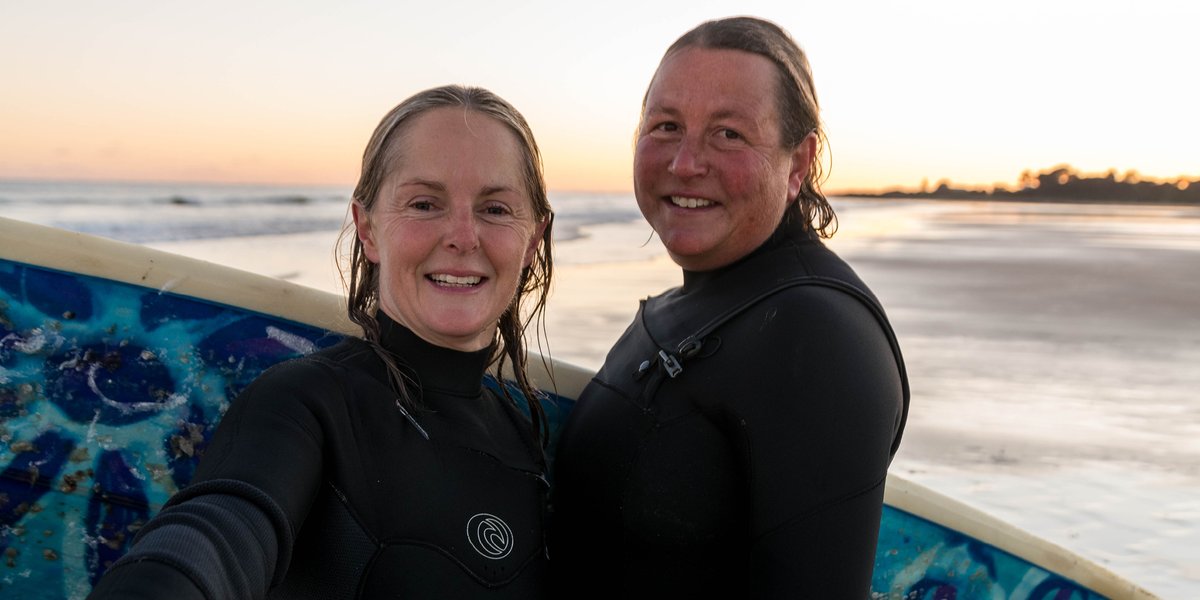
Albert Street Gang
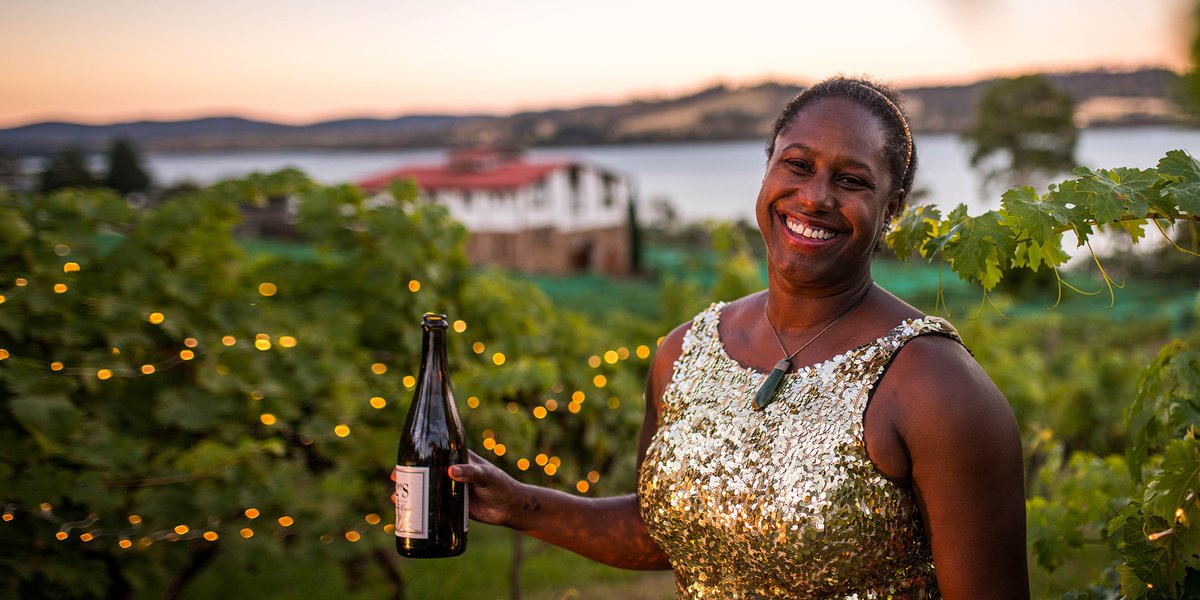
Curly Haslam-Coates
